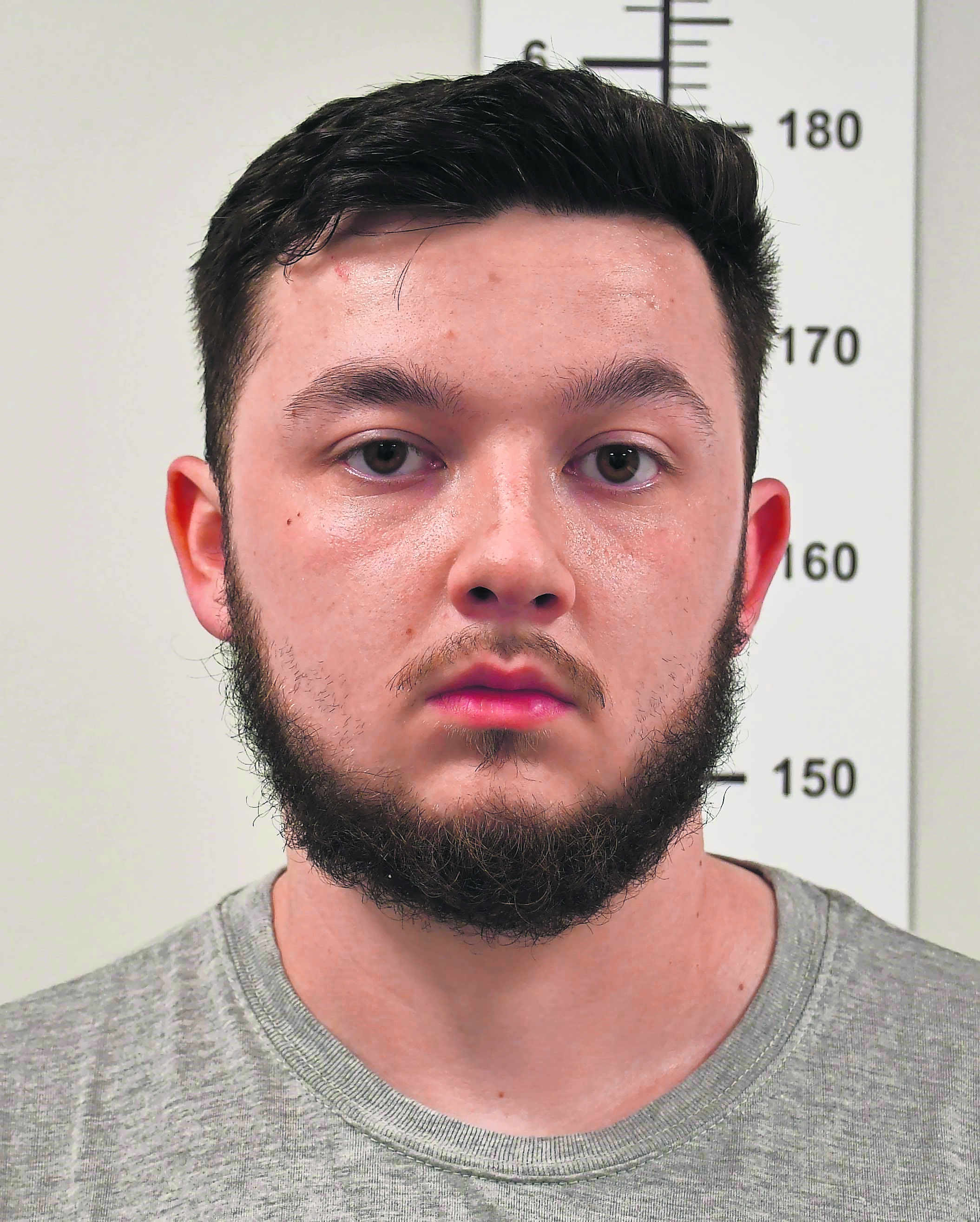Evgeny Chichvarkin first learned of the plot to burn down his Michelin-starred London restaurant when detectives from Scotland Yard arrived, wanting to ask him some questions.
The 50-year-old Russian millionaire owns Hide, which opened in 2018 and is a short walk from the Ritz on Piccadilly. Tables are dotted around an ornate staircase made from a single Swedish oak and diners can pick from a wine list of 8,000 options, including a jeroboam of Montrachet burgundy for £100,040.
One day in April last year, Metropolitan police officers turned up. “The police started to ask strange questions – like who lives above the restaurant and the shop,” he said.
The police told Chichvarkin there had been a plot to torch Hide and also Hedonism, the two-storey Mayfair wine emporium he owns. They had arrested eight men across London and the Midlands before the plan could be carried out.
Chichvarkin is a former billionaire who made his wealth in Russia running a mobile phone retailer before falling out with the Kremlin over his tax bill. He fled to the UK in December 2008 on a tourist visa and successfully fought deportation to Moscow, where he was charged in absentia over alleged links to organised crime groups in what he argued was a politically motivated prosecution.
His mother was found dead with a head wound in her flat in 2010. Chichvarkin believes she was murdered.

Dylan Earl, 20, and 23-year-old Jake Reeves, below, were hired for an arson attack in east London by the Wagner Group. Last October, they were the first people convicted under the 2023 National Security Act

The plot against Chichvarkin had been orchestrated by a small-time drug dealer from Leicestershire, Dylan Earl, who had been enlisted by the Wagner Group, a private paramilitary organisation that has operated as a shadow army for Vladimir Putin in Ukraine and around the world.
The group made global headlines in June 2023 when its leader, Yevgeny Prigozhin, advanced on Moscow in an apparent rebellion against the government over supplies and conditions for his troops in Ukraine. The rebellion was resolved in negotiations and, two months later, Prigozhin was killed in a plane crash.
The Wagner Group has since fallen within the remit of Russia’s military intelligence agency, the GRU.
British security services and counterterrorism police have warned of a rising number of Russian “grey zone” operations – so called because they fall beneath the threshold considered acts of war – that are carried out by actors such as the GRU and the Wagner Group. These missions include online radicalisation of people willing to carry out real-world actions on behalf of Russia.
Newsletters
Choose the newsletters you want to receive
View more
For information about how The Observer protects your data, read our Privacy Policy
Using slick, Islamic State-style videos glamorising the Wagner Group’s missions, the GRU is thought to have influenced scores of young men to carry out attacks in Europe and the UK. In 2024 alone, Russia is suspected of links to 64 plots, attacks and provocations in Europe.
One such target was Earl, a 20-year-old who worked as a labourer and sold cocaine on the side. He lived with his parents in the village of Elmesthorpe, Leicestershire. Disillusioned and in search of a “fresh start”, he is believed to have first joined a pro-Russian Telegram group called AP Wagner Chat in June 2023.
The plot against Chichvarkin was not the only one in which Earl was involved. Last October, he was convicted after admitting to aggravated arson on behalf of the Wagner Group, along with 23-year-old Jakes Reeves – the first two people to be convicted under the National Security Act 2023 and among the first to have been convicted for crimes related to the military organisation in the UK.
Earl had orchestrated an arson attack on an east London warehouse containing satellite technology and aid destined for Ukraine, recruiting three small-time criminals to help him.
Last week, those three men were convicted of offences including aggravated arson with intent to endanger life. A fourth man, Ashton Evans, 20, was convicted of failing to inform police of terrorist activity in relation to the plan to kidnap Chichvarkin and attack his Mayfair businesses
The trial has shed light on the growing threat of pro-Russian radicalisation online. The head of the Met’s counter-terrorism command, Dominic Murphy, said the case was a “clear example” of the Russian state using proxies to carry out criminal activity in the UK.
Most of the crew of drug dealers and low-level crooks had no idea they were being offered thousands of pounds in cash at the behest of the Wagner Group and none of them received payment. But the trial showed Earl had expressed dedication to the group and been in extensive contact, first with a chatbot and then a Wagner Group handler.
After joining the first Telegram chat, Earl joined a larger, similar Telegram group called Grey Zone and, using an online translator, began messaging a Wagner chatbot called Privet Bot in Russian on 15 March 2024.
“Hello friend. How are you?” It asked. “Do you have any friends among hooligans or acquaintances in the IRA,” it added, before encouraging him to think of “actions” he could take in Europe to help the group.
The technique of grooming young men using bots on Telegram has been referred to by Indrek Kannik, the director of Estonia’s International Centre for Defence and Security, as “trash fishing”, as it involves casting a wide net.
Detectives believe that at some point during Earl’s interactions with the bot, a human handler began speaking to him using the same account.
“I need a fresh start bro,” he told Privet Bot, pleading to join the Wagner Group’s mercenaries in Russia. He complained that the group was only recruiting for fighters in Africa.
“Africa is a field of battle where we are fighting too but we would like you to help us in Europe,” the reply read.
The requests became specific. “We have our first task for you,” the account said, mentioning warehouses. “We have satellite systems and images. A thorough reconnaissance has to be carried out, photos and videos taken. You need to use disposable clothes.”
His handler encouraged him to watch the cold war spy drama The Americans, adding: “It will be your manual.”
On 20 March, just five days after the first contact with Privet Bot, Earl used a Telegram group to recruit Reeves, who worked as a cleaner at Gatwick, to help with the warehouse job.
That night, two men recruited by Earl and Reeves broke into the warehouse and started a fire that caused an estimated £1m damage. Four days after the warehouse fire, Privet Bot told Earl: “I have a new contract for you my friend.” Earl was told to kidnap Chichvarkin and to burn down his restaurant and wine shop.
On 31 March 2024, Earl, who later admitted preparing the attacks and planning the kidnap, told Reeves there was a “big payment for this man if you capture him”, adding: “This man needs to be exiled to Russia.”
In a message to a friend discussing the Chichvarkin job, Reeves said Privet Bot “wants to get him sent back to Russia for imprisonment” adding: “He sent money to Ukraine to fund the war”.
Speaking from his £11m Surrey mansion that was once owned by TV star Anthea Turner, Chichvarkin said the plotters were “extremely unprofessional”, adding: “They want me to stop helping Ukraine.” Chichvarkin praised the Met for preventing the plot but said: “I don’t take it seriously – it’s rubbish.”
He added: “I had quite a big business in Russia … I saw bad guys in my life. They threatened me from a very young age … They promised to kill me.” But he said: “If I worry about everything happening around me for the last 33 years, I could finish my life in a mad house. It’s impossible to live in paranoia. I drive with the roof of my convertible down and I keep my roof down even now.”
Last year, suspected saboteurs recruited online to the Russian cause carried out a spate of attacks across Europe, ranging from torching an Ikea store in Vilnius to letter bombs that detonated at DHL warehouses in the UK, Germany and Poland.
‘If you want criminal connections with murderers, soldiers, kidnappers, drug dealers, fraudsters, car thieves, I can sort it all’
‘If you want criminal connections with murderers, soldiers, kidnappers, drug dealers, fraudsters, car thieves, I can sort it all’
Dylan Earl, Wagner proxy
Ivan Stupak, a former Ukrainian intelligence officer, said: “Telegram bots are searching for people who have debts, using debt records, online casinos, and collector companies. After having found a suitable person, a bot passes their data to the recruiting specialist.”
The recruiters take advantage of their targets’ perceived weaknesses, ranging from sick parents to ideological leanings, Stupak added.
The day before his arrest, Earl messaged his Wagner Group handler, writing: “I know I can be the best spy you have ever seen but we need more communication and faster work with contracts. Everything you want in my country I will do immediately.
“If you need connections with IRA, I can sort it. You want criminal connections with murderers, kidnappers, soldiers, drug dealers, fraudsters, car thieves, I can sort it all.”
At the Old Bailey on Tuesday, the judge, Mrs Justice Cheema-Grubb, said the six men convicted would be sentenced on a date to be fixed in the autumn.
Additional reporting by Nina Kuryata
Photograph by Simon Dawson/Bloomberg



